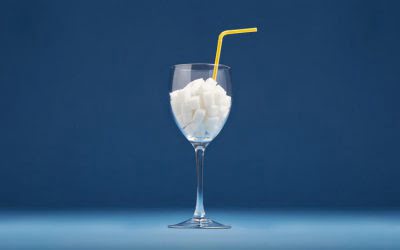How to Stop Alcohol Withdrawal Shakes & Reduce Tremors
by siteadmin
When your body receives the nutrients it needs, it feels better, and you’re less tempted to drink. Alcohol-related brain damage (ARBD) or brain injury (ARBI) are brain disorders caused by long-term, heavy alcohol consumption. If you’ve recently stopped consuming alcohol and experienced shaking, talk to a doctor.

People with a history of AUD who want to quit drinking should contact a specialist who can help them and oversee the gradual withdrawal from alcohol. Alcohol shakes, or tremors, are a symptom of alcohol withdrawal that may occur in people shaking from alcohol when they quit drinking or significantly reduce their alcohol consumption. In addition, mental health disorders, such as anxiety, stress, and depression, can increase the severity of alcohol withdrawal symptoms like tremors.
You guys care, you really do. This isn’t just a machine.
Once this program has been completed, usually the alcohol shakes will have subsided immensely. Dependent on the patient, the dwindling of their shakes can take a bit longer, but eventually the CNS regains its stability. Additionally, the clinicians will monitor the alcohol shakes, ensuring that the proper treatment is given if they persist (which can happen).
And by all means, avoid the sugar snacks that you’ll crave once you start detoxing. Get in the habit of eating every three hours to avoid hunger that could lead to alcohol cravings, which will become more intense once the alcohol shakes set in. Before you begin the alcohol detox, shift to a healthy diet rich in lean proteins like chicken, eggs, fish and non-fatty meats. Add in a lot of raw fruits and vegetables, whole grains, potatoes, beans and pasta.
Are you struggling with an addiction?
When a person struggling with chronic or long-term alcohol abuse quits drinking, they often experience alcohol tremors—uncontrollable shaking, usually in the hands. And a problem in the area of the brain that controls the body’s muscles is what causes these issues. Once you’ve decided to stop drinking alcohol, it’s important to meet with your doctor. He or she can guide you toward the safest, most comfortable, and most effective plan for your sobriety.

Alcohol is a depressant that changes the way the nervous system functions. When a person stops drinking alcohol, they may experience nervous system effects such as tremors. Regularly drinking significant quantities of alcohol gets the brain used to a reduced level of stimulation. When the effect of alcohol wears off, the brain finds it difficult to cope with an increase in activity. This makes the nervous system hyperactive, which may result in shakes or tremors. This article will review alcohol shakes, their causes, treatment, the other signs of alcohol withdrawal, and when a person should contact a doctor.
In addition, certain activities, such as exercise or working outdoors in the heat, can increase the risk of dehydration.
The more your physical and mental health improves, the less likely you are to experience withdrawal shakes or other residual withdrawal symptoms, and the greater quality of life you will enjoy. These tremors can be a sign or symptom of binge drinking, excessive alcohol use over time, alcohol-related brain damage, liver disease, and withdrawal. As mentioned above, tremors, also known as “alcohol shakes”, are a common side effect of alcohol withdrawal. In simple terms, these are fits of involuntary shaking that occur in a person’s body, either centralized to one area or throughout the whole body. Alcohol shakes can happen from both alcohol withdrawal and from excessive alcohol consumption.
This is also a good opportunity to find alternatives to some of your favorite drinks. Be prepared to have these things on hand for when a craving strikes so you can nip it in the bud. The Blackberry Center is a 64-bed behavioral hospital in St. Cloud, Florida.
Alcohol-induced tremors, or “shakes,” are neurological conditions caused by the substance’s effect on the nervous system. Whether it’s social drinking, binge drinking, or chronic alcoholism, excessive consumption can lead to these tremors. They can appear as early as 6 hours after drinking and might last for days. The first step on how to get rid of alcohol shakes is to seek medical help. One must be completely honest about their drinking history to get adequate treatment for alcohol dependence. In the case of alcoholic withdrawal tremors, this symptom is caused by withdrawal from alcoholic substances for a period of time.
- Alcohol is a depressant, meaning it works to suppress the CNS (central nervous system) and lower brain activity.
- The two main causes of alcohol shakes are alcohol withdrawal symptoms and alcohol-related brain damage.
- This makes the nervous system hyperactive, which may result in shakes or tremors.
- The second moderate withdrawal stage occurs between 12 and 48 hours following the last drink.
Alcohol shakes aren’t a sign of weakness but a sign that could lead to health complications. In some mild cases, the tremor may be light and hardly noticeable, but in the more severe cases, it may cause pain and other symptoms that can interfere with daily activities. In the below video, our medical director, Dr. Calarco, explains how alcohol can cause shakes and tremors.
What’s the Right Amount of Alcohol for Your Health?
While hepatic encephalopathy can also lead to coma and death, the condition usually resolves with treatment. Deep breathing is an essential component to many of these practices and works to trigger the body’s natural relaxation response. Slow, deep breathing improves cardiovascular and respiratory health and lifts the mood. Practices like yoga, meditation, mindfulness, acupuncture, and visualization not only help manage stress, they foster a sense of well-being and positive thinking. Hangover shakes can make certain fine motor tasks, such as eating, typing, or dressing, more challenging. A person might speak with a shaky voice or have trouble holding items like utensils.
When your body receives the nutrients it needs, it feels better, and you’re less tempted to drink. Alcohol-related brain damage (ARBD) or brain injury (ARBI) are brain disorders caused by long-term, heavy alcohol consumption. If you’ve recently stopped consuming alcohol and experienced shaking, talk to a doctor. People with a history of AUD who want…
Recent Comments
Archives
- May 2024
- April 2024
- March 2024
- February 2024
- January 2024
- December 2023
- November 2023
- October 2023
- September 2023
- August 2023
- July 2023
- June 2023
- May 2023
- April 2023
- March 2023
- February 2023
- January 2023
- December 2022
- November 2022
- October 2022
- September 2022
- August 2022
- July 2022
- June 2022
- May 2022
- April 2022
- March 2022
- February 2022
- January 2022
- December 2021
- November 2021
- September 2021
- August 2021
- July 2021
- June 2021
- May 2021
- April 2021
- March 2021
- February 2021
- January 2021
- December 2020
- November 2020
- October 2020
- September 2020
- August 2020
- July 2020
- June 2020
- May 2020
- April 2020
Categories
- ! Без рубрики
- ¿Cómo retirar dinero de 1xbet? Guía completa 2023 121
- 1w
- 1win Azerbajany
- 1Win Azerbaycan Rəsmi Veb Saytı İlk 2100 AZN-ə Qədər Bonus 427
- 1Win Brasil
- 1WIN Official In Russia
- 1winRussia
- 1xbet apk
- 1xbet Argentina
- 1xbet Azerbajan
- 1xbet Azerbaycan,1xbet az merc saytı, en yaxsi bukmeker 1xbet Azerbaycan merc oyunlari, 1xbet az, Azerbaycan merc saytlari 667
- 1xbet Azerbaydjan
- 1xbet Brazil
- 1xbet giriş
- 1xbet Kazahstan
- 1xBet Mobile Vebsayt Və 1x Bet Mobil Uygulama Indir 2023 162
- 1xbet qeydiyyat
- 1xbet Russian
- 1xbet: Azərbaycan Mərc Saytı 1xBET Az, 1xbet mobi 2023 265
- 5.03-2
- 50 Darmowych Spinów na Book of Dead w Vulkan Vegas 100
- AI News
- Android, iOS platforması üçün 1win proqramı yükləmək Pulsuz Quraşdırma 113
- Aviator oyna və qazan Rəsmi sayti Aviator Azerbaycan 720
- AZ Most BET
- Azerbajany Mostbet
- Azərbaycan mərc saytı 550
- b1bet apostas
- Bahsegel giris
- Betmotion brazil
- Betsat
- Bettilt casino
- Betting company MostBet app online sports betting 932
- blog
- Bonus Vulkan Vegas: kody rejestracyjne + promocje bez depozytu 34
- Bonus Vulkan Vegas: kody rejestracyjne + promocje bez depozytu 810
- Bookkeeping
- Bootcamp de programação
- Bootcamp de programación
- casino
- Casino Online
- Casino Pin UP Pin-up Casino Resmi Sitesi Türkiye Giriş ve Kayıt Çevrimiçi – 352
- Casino sitesi
- Codere Argentina
- Codere Italy
- Crypto Trading Apps The Best Cryptocurrency Trading Apps 2023 691
- Cryptocurrency exchange
- Cryptocurrency News
- Education
- FinTech
- Forex Trading
- Generative AI
- Hızlı kazançlar ve iyi tatiller için en iyi Mostbet casino 908
- Home Improvement
- Immediate Edge Australia Review 2023 Is it Legit or Scam? – 962
- India Mostbet
- IT Vacancies
- IT Образование
- Kasyno Online Vulkan Vegas ️ Najlepsze Polskie Kasyno 719
- LeoVegas Finland
- LeoVegas India
- LeoVegas Irland
- LeoVegas Sweden
- MA in Computational Arts blog ¿cuál Ha Sido El Código Promocional De 1xbet Argentina? Bono 2023 251
- Mail Order Brides
- mostbet apk
- mostbet az 90
- MostBet AZ Most Bet Casino Qeydiyyat, Yukle Android App 914
- Mostbet AZ Mostbet AZ Azerbaycan casino 978
- Mostbet Azerbaijan
- Mostbet Azerbaycan
- Mostbet Casino TR nasıl giriş yapılır, online casino oyunları ve slotlar, kullanıcılar için mevduat yöntemleri 238
- Mostbet Casino TR nasıl giriş yapılır, online casino oyunları ve slotlar, kullanıcılar için mevduat yöntemleri 29
- Mostbet dən pis bukmeker kontorunun əlamətləri Təhsil Portalı 441
- mostbet giriş
- Mostbet in Turkey
- Mostbet India
- MostBet India Review 2023 Don't Miss Your 25,000 Bonus 23
- Mostbet indir Android APK, iOS için Türkiye ️ Uygulaması nasıl indirilir 220
- Mostbet kayıt: promosyon kodları, bonuslar, ücretsiz bahisler 352
- mostbet kirish
- MostBet Mobile App və Bukmeker Şirkətinin Mobil Versiyası 498
- mostbet oynash
- mostbet ozbekistonda
- Mostbet Promo Kod Azərbaycanda Mostbet Promosyon Kodu 163
- Mostbet promo kod ᐈ Bonusları və Promo-Aksiyalar Mostbet casino AZ 718
- mostbet royxatga olish
- mostbet uz
- mostbet uz kirish
- Mostbet Uzbekistan
- mostbet-ru-serg
- New
- News
- NLP algorithms
- Odkryj Emocje Związane z Grami Online 509
- Online dating
- oyunu sındırmaq mümkündürmü? 238
- pagbet brazil
- Paribahis
- Pin Up Casino nun rəsmi saytı Bonus 700 AZN + 250 frispin 939
- Pin Up Online Casino Azerbaycan ️ Onlayn Kazino PinUp Rəsmi Saytı 569
- Pin Up Peru
- Pin Up yüklə Android cihazları üçün Pin Up bet indir BUP Human Resource and Leadership Club – 60
- PinUp apk
- pinup Brazil
- Potenzmittel
- Puerto Rico REALTORS® MLS Mostbet Türkiye Güncel Giriş Adresiyle Karşınızda! 836
- Sober living
- Software development
- test3
- Təyyarə oyunu 1win 1win Aviator game 679
- Türkiye'nin En İyi Online Bahis Şirketi 617
- Uncategorized
- UZ Most bet
- Vulkan Vegas Bonus im Juli 2023: 200 % bis zu 1 000,00 EUR 171
- Vulkan Vegas Bonus und Promo Code 2022 Bonusprogramm 154
- Vulkan Vegas Casino Bonus 1500 Promo Code 2023 279
- Vulkan Vegas Casino Bonus ohne Einzahlung 25 Euro 555
- Vulkan Vegas DE
- vulkan vegas DE login
- Vulkan Vegas Opinie Forum 800
- Vulkan Vegas Poland
- VulkanVegas Poland
- Вопросы И Ответы Про Бк Mostbet Gəlinlik, Gəlinlik Modelleri, Gəlinlik qiymətləri 404
- казино
- Криптообменники
- Мостбет официальный сайт букмекерской конторы Mostbet 120
- Мостбет Уз Ставки на спорт и казино в букмекерской конторе Mostbet Uz 157
- Новости Криптовалют
- Онлайн казино Mostbet играть в Aviator Spribe 716
- Финтех
- Форекс Брокеры
- Форекс обучение
- Форекс партнерская программа
